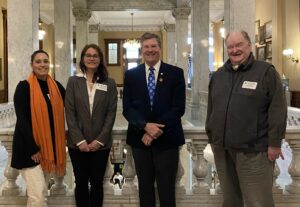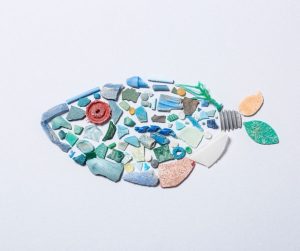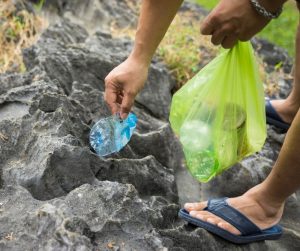GBA’s Latest Action Regarding Microfibers/Microplastics
GBA supports the reintroduced Washing Machine Filter Bill 83, Environmental Protection Amendment Act (Microfibre Filters for Washing Machines), 2023. This bill requires filters to be on clothes washing machines to significantly reduce the amount of microfibers/microplastics entering into our waters. Previously, Ontario Private Member Bills requesting filters on washing machines to reduce microfiber/microplastics have not passed first reading. We need your help again to get the attention of Ontario MPPs. This is not a short and easy fight. We need to keep pushing. Please help get this bill enacted by submitting an email letter to your MPP requesting their support.
Your emails to your MPPs are being bolstered by:
- On March 20th, 2023, the GBA sent an email to every Ontario MPP requesting their support of Bill 83, and providing them a policy paper supporting the solution of washing machine filters that was created by University of Toronto, 5 Gyres, and Georgian Bay Forever.
- This summer GBA will be working to directly engage your local MPPs on this issue that is so important to water protection.
- GBA Water Committee member Heather Sargeant sits on bi-weekly meetings with NGOs including Georgian Bay Forever, the University of Toronto Trash Team, GRAME, and the Great Lakes and St. Lawrence Cities Initiative to continue to build partners to support greater action in Ontario, Canada, and in the US Great Lakes states to support better policy and legislation to stem microfiber/microplastic pollution
The Very Big Problem With Microplastics
Microfibers/plastics in Georgian Bay and the Great Lakes are an ongoing concern because of their potential negative impacts on the environment and human health and their accumulation in our freshwater systems. Microplastic pollution is a complex issue since there is not a singular source material or route into the environment. The physical and chemical compositions of microplastics also add to the complexity of this issue.
However, research continues to show that microfibers are the most prevalent type of microplastic and other anthropogenic particles in the environment. Laboratory studies show microfibers – including plastic (e.g., nylon and polyester) and natural (e.g. cotton and rayon) – can cause negative effects to animals and often contain harmful chemicals, some of which are known toxics. While there is growing evidence that humans are consuming microfiber pollution in food and more, impacts to humans are unknown at this time and continue to be studied. Here are examples of microplastics found in the placentas of unborn babies, Science Direct: Plasticenta: First evidence of microplastics in human placenta, and microplastics found in human blood, The Guardian: Microplastics found in human blood for first time.

-
-
-
-
-
-
-
-
- Pieces of plastic that are ≤ 5 millimeters in size
- Vary in shape, chemical composition and origin.
- Produced from the degradation of a larger plastic source
- Produced at scale as a microbead, microfiber or micropellet
-
-
-
-
-
-
-
Because of these properties microplastics can easily move through the environment and into our drinking water and aquatic food chains. This threat to human and environment health makes microplastics pollution mitigation a very pressing issue. Research and projects regarding microplastics in Georgian Bay have been led mainly by the University of Toronto and Georgian Bay Forever.
What’s Being Done and What You Can Do
 In March 2024, GBA representatives met with Brian Saunderson, MPP for Simcoe-Grey, to discuss how to reduc microplastic/microfibre pollution in the Great Lakes. This exploratory meeting should lead to the development of a strategy to build consensus across industry, academia, government and NGOs on how we can work together to get microfibre filters installed on new washing machine filters, and encourage their application on existing washing machines. Eden Hataley, from the University of Toronto, presented a summary of the issue to show why action is needed.
In March 2024, GBA representatives met with Brian Saunderson, MPP for Simcoe-Grey, to discuss how to reduc microplastic/microfibre pollution in the Great Lakes. This exploratory meeting should lead to the development of a strategy to build consensus across industry, academia, government and NGOs on how we can work together to get microfibre filters installed on new washing machine filters, and encourage their application on existing washing machines. Eden Hataley, from the University of Toronto, presented a summary of the issue to show why action is needed.
What you can do:
- Send an email to your MPP to support passage of Ontario Bill 83, ”Environmental Protection Amendment Act (Microfibre Filters for Washing Machines), 2023
- Keep updated on the Washing Machine Filter Project, “Divert and Capture” by Georgian Bay Forever
- Learn about plastic litter mitigating initiatives by Georgian Bay Forever in its project, “Diversion 2.0” to capture and divert litter in our waterways. There are several components that require
 volunteers
volunteers - Get involved with shore cleanup days with your association or with an organization, such as GBF
- Consider installing microfibre collection technologies on your washing machine such as: Microplastics Luv-R or Wexco Filtrol 160
- Promote proper recycling and waste disposal at your cottage and/or home
- When investing in a new dock unsure that foam is encapsulated or look into foam alternative options. Please contact the GBA if you would like more information on what to do and see how we worked to help passage of a Bill on this issue. https://georgianbay.ca/water/water-quality/dock-foam/

Other Helpful Links
- Support Bill 83 on Washing Machine Filters
- UoT and GBF Study: Washing Machine Filters Reduce Microfiber Emissions: Evidence From a Community-Scale Pilot in Parry Sound, Ontario
- Alliance for the Great Lakes – Great Lakes Plastic Pollution page
- Government of Canada – Microbeads
- Great Lakes Plastic Cleanup
Press Coverage
- Climate Change, Microplastics Pose Threat to Georgian Bay and Severn Sound Watershed – Apr 19, 2022
- Filters on Laundry Machines Lead to ‘Significant’ Cut in Microfibre Pollution, CBC, Nov 20, 2021
- Microplastics Found in Human Blood for the First Time, The Guardian, Mar 24, 2022


